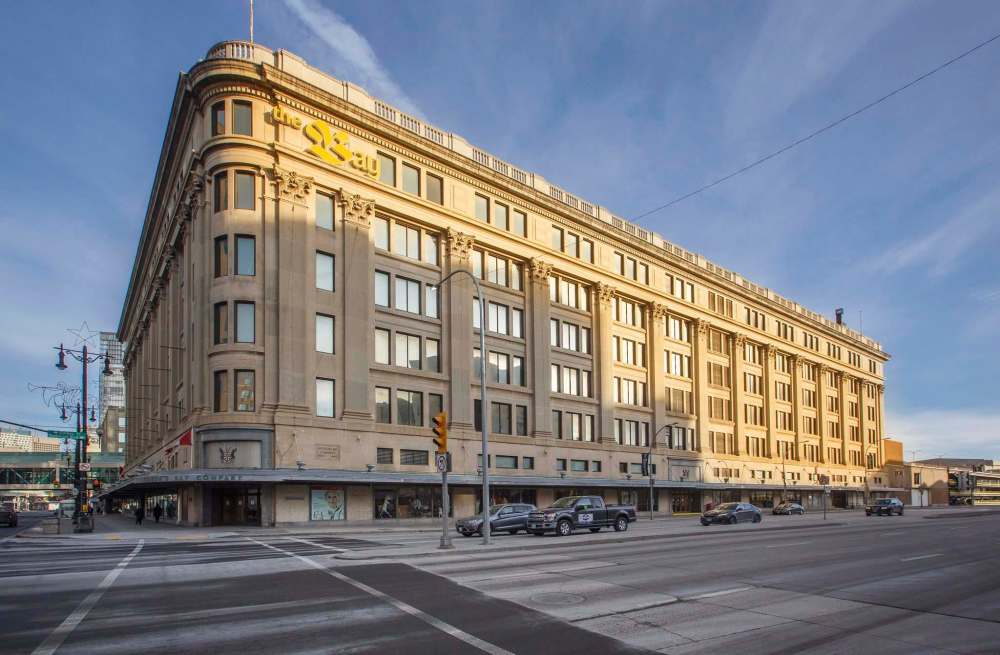Local businesses need support, patience
Read this article for free:
or
Already have an account? Log in here »
To continue reading, please subscribe:
Monthly Digital Subscription
$0 for the first 4 weeks*
- Enjoy unlimited reading on winnipegfreepress.com
- Read the E-Edition, our digital replica newspaper
- Access News Break, our award-winning app
- Play interactive puzzles
*No charge for 4 weeks then price increases to the regular rate of $19.00 plus GST every four weeks. Offer available to new and qualified returning subscribers only. Cancel any time.
Monthly Digital Subscription
$4.75/week*
- Enjoy unlimited reading on winnipegfreepress.com
- Read the E-Edition, our digital replica newspaper
- Access News Break, our award-winning app
- Play interactive puzzles
*Billed as $19 plus GST every four weeks. Cancel any time.
To continue reading, please subscribe:
Add Free Press access to your Brandon Sun subscription for only an additional
$1 for the first 4 weeks*
*Your next subscription payment will increase by $1.00 and you will be charged $16.99 plus GST for four weeks. After four weeks, your payment will increase to $23.99 plus GST every four weeks.
Read unlimited articles for free today:
or
Already have an account? Log in here »
Hey there, time traveller!
This article was published 10/12/2020 (1825 days ago), so information in it may no longer be current.
In a season typically marked by shoppers thronging the malls, supermarkets and big-box stores, this year’s version of festive shopping has been drastically different. COVID-19 public-health orders have restricted indoor gatherings. Businesses, both essential and non-essential, have been hit hard, with many of the latter adapting, as they did during lockdowns in the spring, by selling via delivery or curbside pickup.
It hasn’t been easy, for either large businesses or small. While the forces affecting large retailers in the era of online shopping have been putting the squeeze on brick-and-mortar stores for years, last month saw the abrupt closure of a downtown retail landmark. The Bay store’s days were already set to end, but its official end came suddenly and without fanfare. Similarly, the large Staples store across the street in Portage Place quietly shut its doors earlier this year.

As tough as it is for big chains, small businesses have it even harder. Many are caught in one of the busiest retail seasons of the year without being allowed to open their doors to customers. And this following an already impossibly difficult nine months.
The Canadian Federation of Independent Business released survey results in October concerning business owners’ experience of the pandemic. They painted a stark picture. The top two worries among those surveyed were uncertainty related to the second wave of COVID-19, and the economic repercussions. Sixty-six per cent of respondents said their businesses were fully open (for Manitoba alone, the percentage was 63; 30 per cent said they were partially open.)
More concerning for people’s livelihoods were questions of staffing. Only 43 per cent said they had normal or better numbers of employees; 32 per cent had half the normal number or more; and 18 per cent had less than half of their normal level.
The problem of what to do about it, now that Manitoba is deep into a second wave of COVID-19 infections, is a double-edged sword. Manitoba shoppers are clearly looking for ways to shop local for the holidays, as city retailers are struggling to keep up with phone or online orders. One online platform, Good Local, spearheaded by Exchange District businessman Obby Khan, received so many orders that the system had to be paused for roughly a week in order to hire people and scale up the capacity to serve customers.

What, then, are local businesses to do? As long as there are restrictions on in-person buying, federal supports may prove crucial to keeping the lights on for many. The federal government recently announced the Highly Affected Sectors Credit Availability Program, which would provide loans of up to $1 million for suffering entrepreneurs, in addition to an expanded emergency loan program. Other grants are being made available to those in the arts and tourism industries.
The Manitoba government has also provided $1.5 million to the Manitoba Chambers of Commerce to help small businesses through the pandemic, part of $50 million of promised support announced by the province on Nov. 10.
For most small businesses, however, nothing will replace in-person traffic, and that will have to wait until restrictions are lifted. That means the future of many businesses depends on the province’s efforts to control the outbreak. There is no saving the economy without safety from COVID-19.
And perhaps shoppers, who are admirably showing support by opening their wallets, should exercise a bit of extra-festive patience in their seasonal dealings with overwhelmed local businesses, and then vow to keep supporting them well into the New Year.








